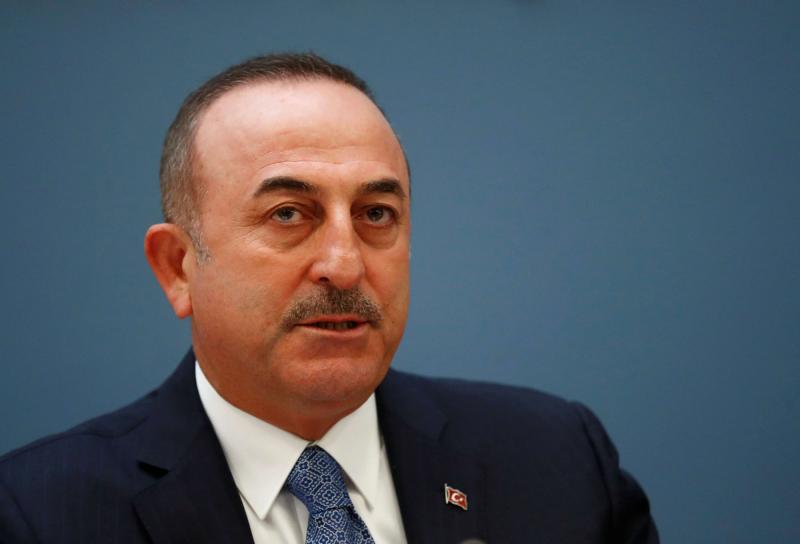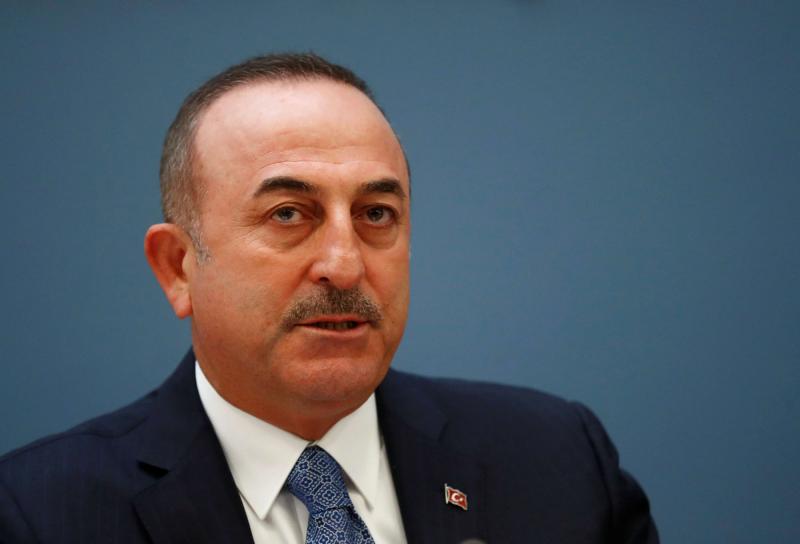How serious is Ankara in reaching out to the EU?
“The EU needs Turkey as much as Turkey needs the EU,” wrote Turkish Foreign Minister Mevlut Cavusoglu in an article published by Politico. Given the alarming circumstances Turkey is in, his text could not hide the sense of urgency that has enveloped the corridors of power in Ankara.
Turkey’s room for manoeuvring is becoming narrower every week. It is obvious that the administration of Turkish President Recep Tayyip Erdogan is seeking to keep doors open with its Western partners and allies.
It is quite common to see Turkish officials’ convulsions as a death-agony for the political line it has chosen for more than five years, as the world watched its farewell for all the basic criteria that would constitute a minimal brand of democracy.
Turkish foreign policy is in shambles, lacking coherent strategies. Many departments, particularly Cavusoglu’s ministry, keep busy salvaging the day and every move seems an attempt to win more time. Issues that long ago could have been resolved with the entire neighbourhood remain piled up and are increasing, with Turkey’s patterns of threats, muscle-flexing and rough, reactive rhetoric adding to the impasse.
A major reason for this is Erdogan’s choice of establishing an extremely centralised decision-making process, which links all sorts of macro- and micro-management to his person.
Cavusoglu’s article fails to disguise the alarm spreading in Ankara, that drifting away irreversibly from the European Union — Turkey’s biggest trade partner — may speed up the death of the policies he represents.
The article follows the so-called Reform Action Group meeting May 8 in Ankara, during which Erdogan, in his speech to EU representatives, was noted to have somewhat softened his customary harsh rhetoric.
Calling for a revival of the spirit of EU accession, Erdogan surprised the audience by saying: “Turkey’s priority is to enhance the basic rights and freedoms of its citizens. If necessary, we would rename the steps that must be taken for these [enhancement of the rights], changing it from Copenhagen (Criteria) to Ankara.”
Cavusoglu elaborated steps, in his Politico article, to put things back on track. First, he wrote, that the country is leaving behind the hard times that followed the attempted coup and all that that was done should be accepted “because (it was) an existential issue for Turkish democracy” and a “trauma.” Second, he cited the bumpy international conjuncture as the factor that should bring Turkey and the European Union together. Third, he argued, both sides need each other on security, migration, soft power and energy.
Such a U-turn from a minister who not long ago delivered severe insults to EU leaders is self-explanatory as political despair but whether these points are convincing enough to rebuild a totally vanished trust is rather easy to foresee.
By and large, Turkey today is farther away from meeting the Copenhagen Criteria, or even Maastricht Criteria, than it was 20 years ago when it was declared a “candidate country.”
Its president is the unchallenged strongman who almost totally demolished the separation of powers, caused huge damage to the rule of law, seized up to 93% of the media sector and stood for endless breaches of the constitution by acting as president and, at the same time, chairman of his political party, keen to be seen as the partisan head of the state.
It is highly questionable whether the one-man regime Cavusoglu consolidated in the referendum of 2017 — in the shadow of a murk state of emergency — befits any longer the criteria that would qualify a continuity of the accession process.
In terms of human rights, Turkey stands as a champion of its breaches. Human Rights Watch said there are more than 45,000 inmates who could be labelled “political prisoners” — Kurds, Gulenists, leftists, journalists, et cetera, kept behind bars arbitrarily on bogus charges. Main opposition leader Kemal Kilicdaroglu has called Turkey repeatedly as an “open-air prison.”
If Cavusoglu’s article is to be taken seriously, what is to be done amounts to a gigantic task. It hints at a timid will to “do something” on judicial reform, however limited.
Some reports say a strategy paper on legal reform is being prepared, to be announced before Eid al-Fitr in early June. Its contents are unknown but rumours imply slight amendments in Anti-Terror Law, which may lead to a drop of legal cases against journalists and academicians.
However, given the anti-freedom, anti-Kurdish and anti-Western spirit in the current alliance of Erdogan’s Islamists and their ultranationalist partners, these whispers should be taken with a pinch of salt.
The escalating tension — due to Turkish military visibility off Cyprus and the Aegean, which the European Union notes with anxiety — any shortcoming domestic reform attempt will be seen also as the “appeasement for the sake of keeping the economic relations intact” and a ploy for venting sentiments at home somewhat to divert the votes from the opposition to the ruling party, in the upcoming Istanbul election.
The current olive branch from Ankara to the European Union may be far too dry and far too late.
Yavuz Baydar is a senior Turkish columnist, and news analyst. A founding member of the Platform for Independent Journalism (P24) in Istanbul, he has been reporting on Turkey and monitoring media issues since 1980. A European Press Prize Laureate in 2014, he is also the winner of Germany's 'Journalistenpreis' in 2018.
This article was originally published in The Arab Weekly.







